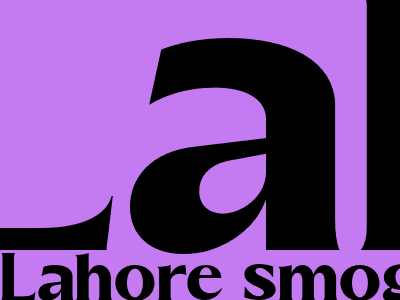
Lahore smog: Pollution hits record levels in Pakistan city
Lahore's air quality has deteriorated to hazardous levels, with the city recording its highest-ever air pollution index (API) of 451 on November 26, 2022.
The smog, a toxic haze caused by a combination of vehicular emissions, industrial pollution, and agricultural burning, has enveloped the city, causing widespread respiratory problems and other health issues among the population.
The Punjab Environmental Protection Agency (EPA) has issued a health advisory, urging residents to stay indoors and avoid outdoor activities. Schools and colleges have been closed, and traffic has been restricted in an effort to reduce pollution levels.
Experts attribute the worsening air quality to a number of factors, including the burning of crop stubble in neighboring India, the use of low-quality fuels in vehicles, and the lack of effective pollution control measures. They warn that the smog is likely to persist for several weeks, and could have a significant impact on the health and well-being of the city's residents.
The Lahore smog crisis has highlighted the urgent need for action to address air pollution in Pakistan. The government has announced a number of measures to tackle the problem, including the introduction of stricter emission standards for vehicles, the promotion of clean energy sources, and the planting of more trees.
However, experts say that these measures will take time to have an impact, and that more needs to be done to improve air quality in the long term. They call for a comprehensive approach that involves all stakeholders, including the government, industry, and the public.
Here are some tips to protect yourself from the smog:
- Stay indoors as much as possible, especially during peak pollution hours.
- If you must go outdoors, wear a mask to protect your lungs from the polluted air.
- Avoid strenuous activity, as this can increase your exposure to pollutants.
- Drink plenty of fluids to stay hydrated.
- If you experience any respiratory problems, such as coughing, wheezing, or shortness of breath, seek medical attention immediately.
Conclusion:
The Lahore smog crisis is a wake-up call for Pakistan. The government, industry, and the public need to work together to address air pollution and protect the health and well-being of the population.